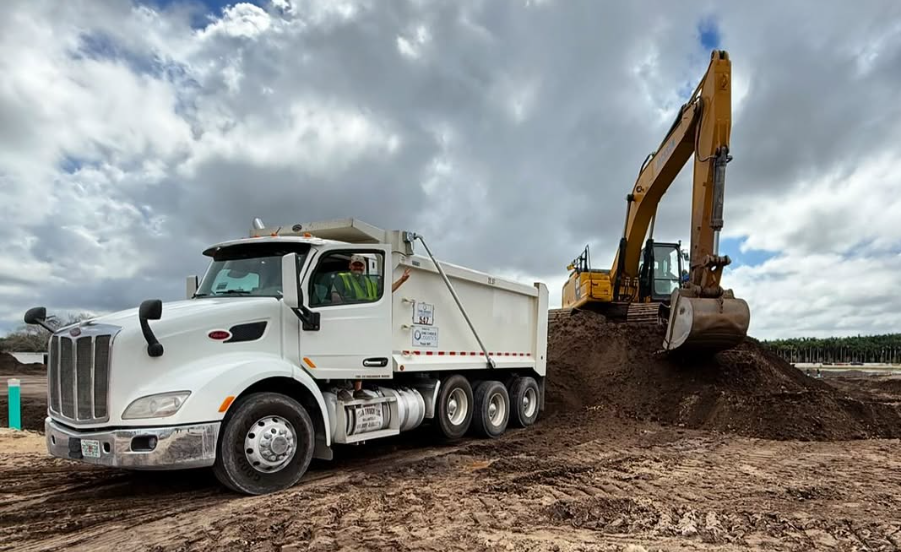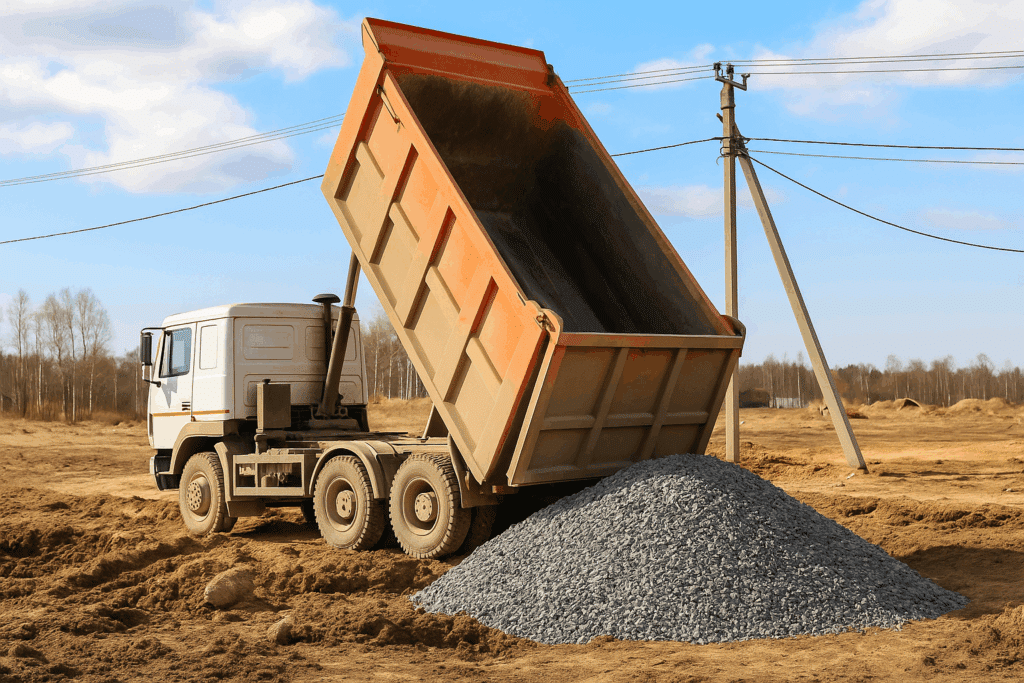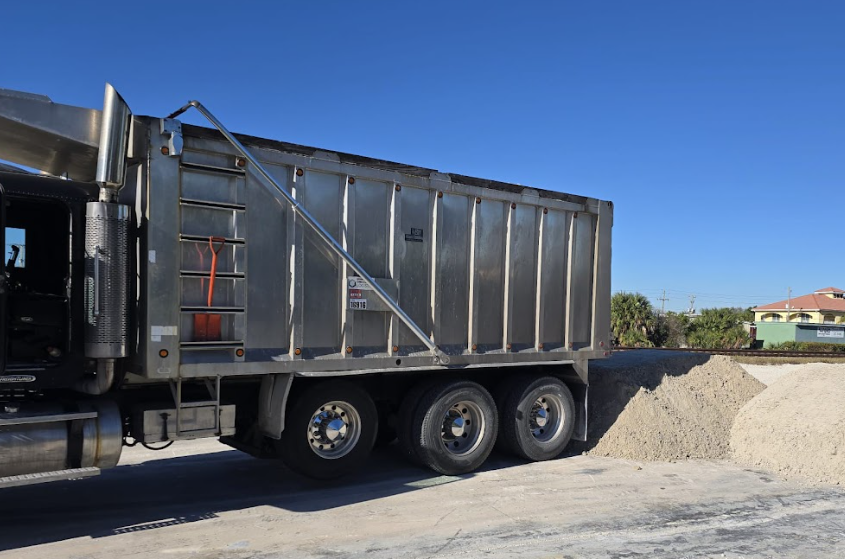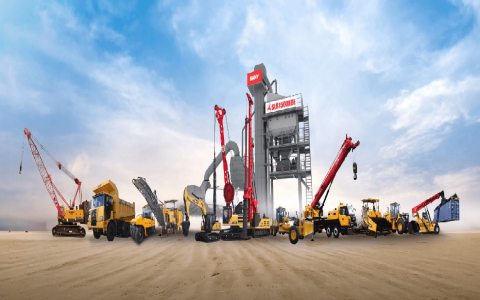How Much Is a Dump Truck Load of Dirt? Cost Guide & Pricing
How Much Is a Dump Truck Load of Dirt? Your 2024 Cost Guide
If you’re planning a landscaping project, one of the first questions that pops up is: how much is a dump truck load of dirt? The short answer is that a standard dump truck load of dirt typically costs between $150 and $550, with most homeowners spending around $350. However, that’s just the starting point. The final price for a truckload of dirt depends on a mix of factors including the type of material, the amount you need, and your location. As someone who has spent over a decade reviewing heavy-duty trucks and their payloads, I’ll break down everything you need to know to budget accurately for your project.
Breaking Down the Dump Truck Load
Before we dive into the numbers, it’s crucial to understand what we’re measuring. Dump trucks don’t come in one universal size. The most common unit of measurement is a “yard,” which is a cubic yard. Visually, one cubic yard of material would fill up the space inside a washing machine.

A standard full-size dump truck can typically carry between 10 and 16 cubic yards of material. Smaller dump trucks, often called “mini-dumps,” might carry only 5 to 7 cubic yards. When a supplier quotes you a price for a “dump truck load,” always confirm how many cubic yards that price includes. This is the most important step to avoid unexpected costs.
Key Factors That Influence Dirt Delivery Costs
The price isn’t just about the volume. Several elements play a significant role in determining your final bill for a truckload of dirt.
- Type of Dirt or Soil: Not all dirt is created equal. Fill dirt, which is used to create a stable base or fill holes, is the most affordable. Topsoil, rich in nutrients for growing plants and grass, costs more. Specialty soils like compost or garden mixes are at the higher end of the price spectrum.
- Quantity and Truck Size: Buying in bulk almost always reduces the cost per yard. A full truckload is more cost-effective than several partial loads. The size of the truck needed to access your property can also affect the price.
- Delivery Distance and Fees: The proximity of the supplier to your job site is a major cost driver. Most companies include a certain delivery distance in their base price and charge extra for miles beyond that. Some also have flat-rate delivery fees.
- Soil Quality and Source: Screened topsoil, which has been filtered to remove rocks and debris, is more expensive than unscreened. Organic blends will also command a higher price.
Dump Truck Load of Dirt Cost by Material Type
To give you a clearer picture, here’s a detailed breakdown of costs based on the most common types of material you might order. These prices are per cubic yard, which is the standard unit for bulk material.
| Material Type | Average Cost Per Cubic Yard | Best Use Case |
|---|---|---|
| Fill Dirt | $5 – $15 | Base for patios, filling trenches, leveling ground |
| Topsoil | $12 – $50 | Lawn establishment, garden beds, landscaping |
| Compost | $20 – $50 | Enriching garden soil, improving soil structure |
| Sand | $15 – $40 | Paver base, sandboxes, mixing with concrete |
| Garden Mix | $30 – $60 | Raised garden beds, vegetable patches |
For a full 10-yard dump truck load, you’re looking at a total price range of $50 to $150 for fill dirt, and $300 to $600 for premium topsoil. These estimates align with data from HomeAdvisor, which reports that the national average cost for a dump truck load of topsoil is between $150 and $550.
Additional Costs You Should Budget For
The base price of the dirt is only part of the story. Don’t let hidden fees derail your project budget. Be sure to ask your supplier about these potential add-ons.
- Delivery Fees: These can range from $50 to $150 or more, especially for rural locations.
- Fuel Surcharges: With fluctuating gas prices, some companies add a fuel surcharge to deliveries.
- Spreading Services: If you don’t want to move the dirt yourself, the supplier can often do it for an additional $40 to $80 per hour.
- Sales Tax: Depending on your state, sales tax may apply to both the material and the delivery service.
Getting the Right Dirt for Your Project
Choosing the wrong material is a common and costly mistake. I consulted with landscaping expert Michael Garcia, a certified professional with extensive experience in soil science, to clarify the best choices for common projects.
“For a new lawn, you don’t want pure topsoil,” Garcia advises. “You want a blended topsoil that has some sand and compost for better drainage and root development. Using the wrong soil can lead to drainage problems and poor plant health.” For filling large holes or building up a building pad, clean fill dirt is essential as it contains no organic matter that will decompose and cause settling.

How to Get an Accurate Quote for Your Dirt Delivery
To ensure you get a fair price for your dump truck load of dirt, follow these steps:
- Measure Your Area: Calculate the cubic yards you need. (Length (ft) x Width (ft) x Depth (ft)) / 27 = Cubic Yards.
- Identify the Soil Type: Decide whether you need fill dirt, topsoil, or a specialty mix based on your project’s requirements.
- Contact Local Suppliers: Get quotes from at least three different landscape supply companies or trucking services. Ask if the quote includes delivery and up to what distance.
- Inspect the Material: If possible, ask to see a sample of the dirt before it’s delivered to ensure it’s free of large debris and matches the quality you’re paying for.
Frequently Asked Questions
How many cubic yards are in a dump truck?
A standard full-size dump truck can hold 10 to 16 cubic yards. Smaller trucks hold 5 to 7 cubic yards.
How much does 10 yards of dirt weigh?
One cubic yard of topsoil weighs about 1,000 to 2,000 pounds. Therefore, a 10-yard load can weigh between 5 and 10 tons. It’s critical to ensure your driveway or access path can support this weight.
Is it cheaper to buy dirt in bulk?
Absolutely. Purchasing a full dump truck load is almost always cheaper per cubic yard than buying individual bags from a home improvement store.

Can I have the dump truck load dumped on my driveway?
You can, but be cautious. The immense weight can crack asphalt or damage a concrete driveway. It’s always better to have the load placed on a sturdy, level area of your yard if possible.
Sources and References
To ensure the accuracy of this cost guide, we referenced data and information from the following authoritative sources:









